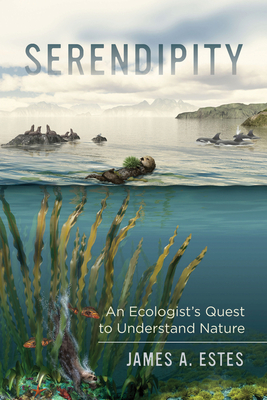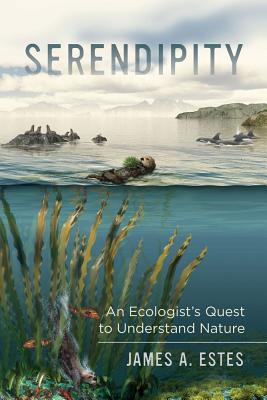James A Estes
James Estes is Distinguished Professor in the Department of Ecology and Evolutionary Biology at University of California at Santa Cruz. Estes is a wildlife ecologist, recognized for his work on the ecosystem-level influences of large predators. He is known especially for studies of sea otters and kelp forest ecosystems, from which he demonstrated the enhancing influence of predators on the distribution and abundance of plants through what has since come to be widely known as a “trophic cascade.
Estes was born in Sacramento, California, in 1945. He graduated from the University of Minnesota with a degree in zoology in 1967, subsequently obtaining a Masters in Biology from Washington State University in 1969 and a PhD in biology and statistics from the University of Arizona in 1974.
He was employed as a research scientist by the U.S. Fish and Wildlife Service and the U.S. Geological Survey from 1974 to 2007, after which he joined the faculty at the University of California at Santa Cruz. In recognition of his work’s scientific and societal impacts,
Estes received the U.S. Geological Survey’s Schumaker Award for excellence in science communication, the Western Society of Naturalists’ Lifetime Achievement Award, and the American Society of Mammalogists’ C. Hart Merriam Award.
Research Interests
James Estes’ laboratory is interested in the behavioral ecology of large predators and the impacts of these animals on other species and ecological processes. They have explored the effects of sea otter predation on temperate reef ecosystems by first defining the food web’s structure through observational studies and then documenting the dynamic consequences of various consumer-prey interactions by contrasting islands of the Aleutian archipelago as sea otter populations waxed and waned following their near-extinction by the Pacific maritime fur trade.
They have shown that sea otters enhance kelp forests by limiting populations of herbivorous sea urchins; that the effects of this trophic cascade extend widely through coastal ecosystems to other species and ecological processes; that predation by sea otters and their recent ancestors decoupled the coevolution of defense and resistance by marine plants and their herbivores; and that North Pacific kelp forests have been further influenced by events in the open sea that caused killer whales to begin preying on sea otters, thus driving otter populations downward and altering their effects on coastal ecosystems through the otter-urchin-kelp trophic cascade.
Using this system as a model, they have helped identify the ecological and evolutionary influences of large predators across global ecosystems and the resulting consequences of widespread losses of these species on numerous features of the world we live in.
Source: National Academy of Sciences
Books by Author
Videos














